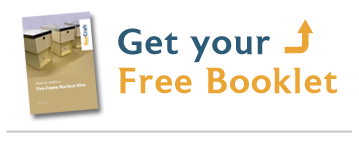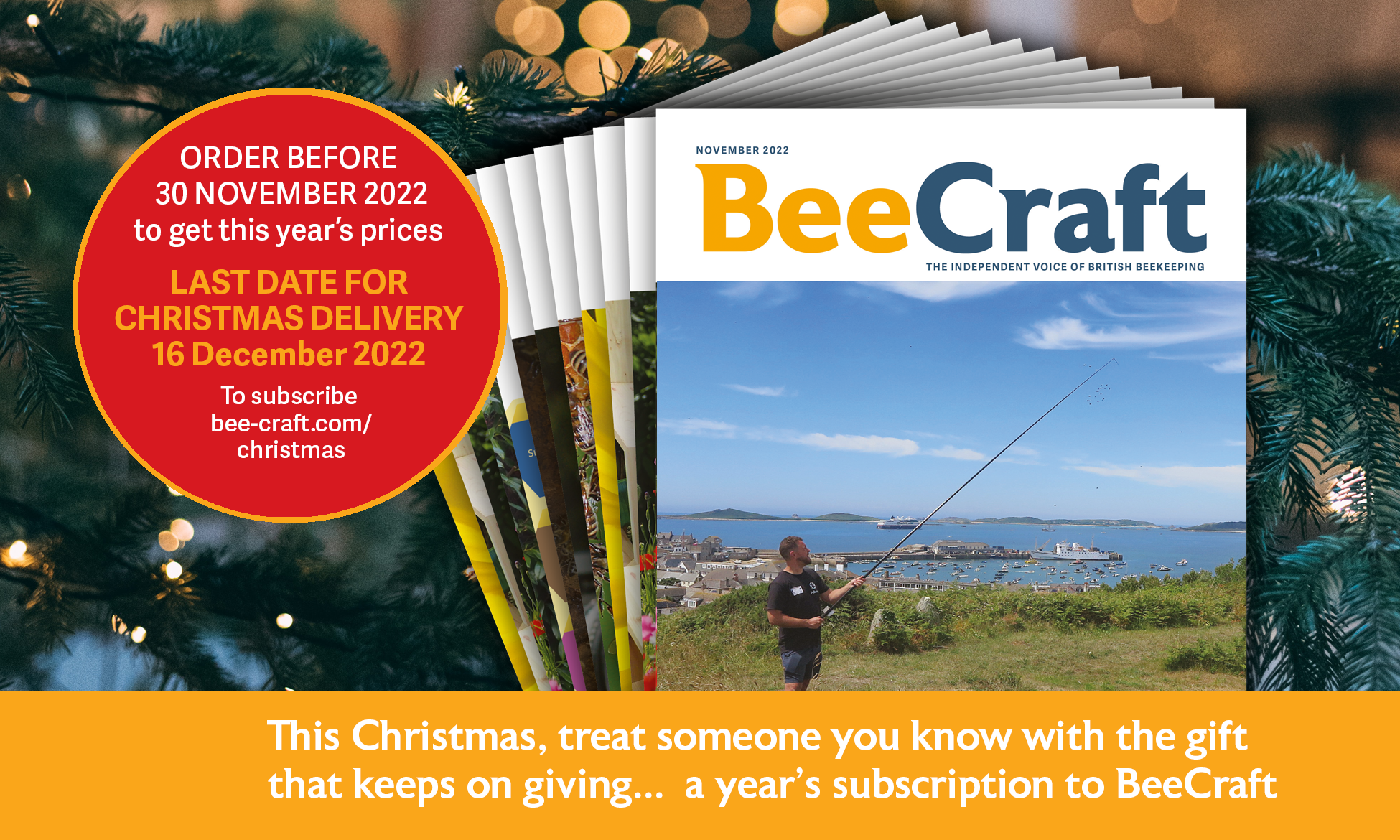BeeCraft at The National Honey Show - 21-23 October, 2021
BeeCraft Research Lectures
Free as part of the Show entrance
No booking required, arrive early to secure a place
Just follow the signs to the Solario Suite or ask at the BeeCraft stand.
Since 2012, BeeCraft has sponsored very popular lectures by up-and-coming researchers. Throughout the year, Andrew Gibb keeps a sharp eye for young scientists with something new to say. He selects well – many have gone on to be leaders in their field, raising subjects close to the hearts of beekeepers. As always, this year’s selection offers a fascinating insight into the latest research from rising stars.
 9.30 The treatment-free survey: Alexandra Valentine, University of Salford
9.30 The treatment-free survey: Alexandra Valentine, University of Salford
As part of her undergraduate research project for her Zoology BSc, Alexandra investigated the distribution and composition of beekeepers across the UK who did and did not treat for varroa. With her supervisor, Professor Stephen Martin, she undertook a national survey to estimate the number of treatment-free beekeepers across the UK. She is now delighted to be able to share her results with the beekeeping community.
 11.00 The electric ecology of bees: Beth Harris, University of Bristol
11.00 The electric ecology of bees: Beth Harris, University of Bristol
As a first year PhD student in the School of Biological Sciences at the University of Bristol, Beth’s research focuses on the mechanisms by which bees detect electric fields in their environment and how this may be important in pollination and communication with each other.
 12.30 Insect-inspired nanotechnology: how to deter bacteria swiftly: Irill Ishak, University of Bristol
12.30 Insect-inspired nanotechnology: how to deter bacteria swiftly: Irill Ishak, University of Bristol
Bristol Dental School From chemistry to engineering, researchers have long taken inspiration from nature. Nature has developed materials, objects and processes that function from the macroscale to the nanoscale. Insects, in particular, have developed nanomaterials which have exciting technological applications. Many insects like the cicada, moth, planthopper and dragonfly have nanostructures on their wings which scientists believe increase their flying efficiency and help keep their wings clean from dust and bacteria. In our laboratory, we have been mimicking nature to combat bacterial infection on medical implants by limiting bacterial interaction with the implant surfaces using nanostructures.
 14.00 Beekeepers perceptions towards a new PoshBee tool for bee health: Elena Cini, University of Reading
14.00 Beekeepers perceptions towards a new PoshBee tool for bee health: Elena Cini, University of Reading
Pollinators are facing a worldwide decline from multiple causes. Understanding the effects and how they may interact is a crucial step towards halting and reversing such declines. Elena’s PhD work aims to answer questions related to bee health and the impact of stressors including how agrochemicals, pests and pathogens might interact with landscape characteristics to affect the health of bees. Her work, part of the PoshBee EU Horizon 2020 project, focuses on two main elements: large-scale fieldwork and a social science study. In her talk, she will illustrate the main aims of the PoshBee project and the preliminary results of her own work.
BeeCraft stand in the trade hall
Come and meet say hello to us in the trade hall! Look out for a show-special subscription offer, book signings and more!
Pre-booking for the Show
To reduce queuing, admission will be strictly by pre-booked ticket only. Booking closes 11 October.
See www.honeyshow.co.uk
Day tickets are available from the website shop.
Membership of the National Honey Show gives the usual admission for all three days of the show and can be bought or renewed from the website shop.
Subscribe to BeeCraft Magazine
- £27.00* - Digital Subscription | 12 months
- £45.00* - UK Printed Subscription | 12 months
- £80.00 - UK Printed Subscription | 24 months
* UK residents over the age of 18 can subscribe to BeeCraft via Direct Debit and save up to £7.00 on your subscription. For more information on our Direct Debit scheme, please click here.
- £27.00 - Digital Subscription | 12 months
- £50.00 - Digital Subscription | 24 months
- £67.00 - RoI & European Printed Subscription | 12 months
- £27.00 - Digital Subscription | 12 months
- £50.00 - Digital Subscription | 24 months
- £90.00 - Worldwide Printed Subscription | 12 months




